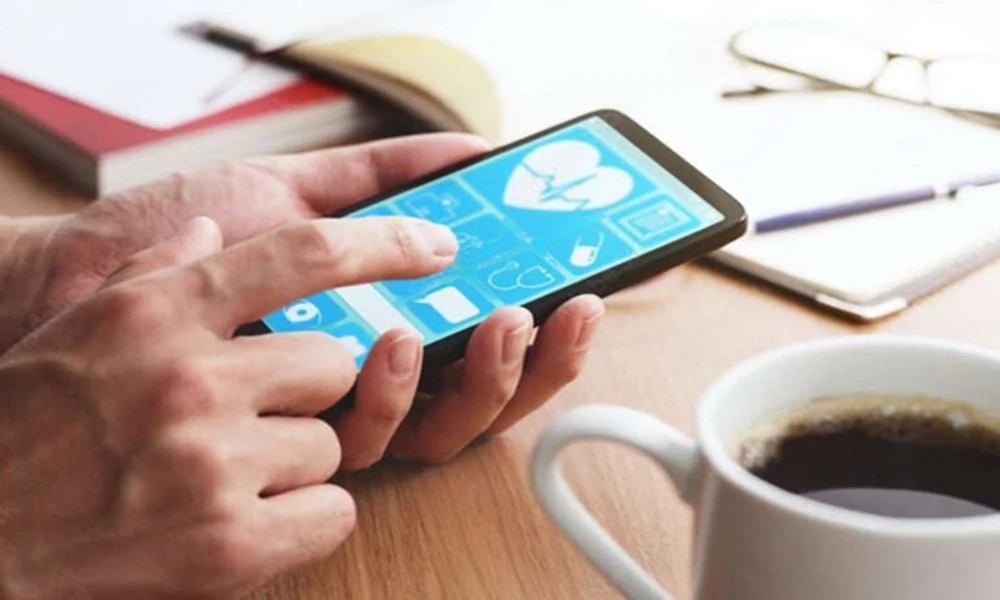Revolutionizing Wellness: The Impact of Healthcare Apps and Mobile Health
Category: Smart Healthcare Technologies
In an age where smartphones have become integral to our daily lives, healthcare apps and mobile health (mHealth) technologies are driving a transformative shift in the healthcare landscape. These digital tools are not merely novelties; they are catalysts for personalized health management, improved patient engagement, and the democratization of medical information. This article explores the diverse applications of healthcare apps and mHealth, examining how these technologies are reshaping patient care, preventive health measures, and overall well-being
1. Empowering Patients: The Rise of Personalized Health Apps
- Healthcare apps are empowering individuals by providing personalized health management solutions. This section explores how apps tailored to specific health needs, such as fitness trackers, medication reminders, and symptom checkers, empower users to actively participate in their well-being. The advent of personalized health apps fosters a shift from reactive to proactive healthcare, where individuals can monitor and manage their health in real-time.
2. Virtual Consultations and Telehealth Apps: Redefining Access to Healthcare
- Telehealth apps have emerged as indispensable tools, especially in the context of virtual consultations. This heading delves into how these apps connect patients with healthcare professionals remotely, breaking down geographical barriers and enhancing access to medical advice. Virtual consultations not only provide convenience but also contribute to timely interventions, particularly in cases where immediate medical attention is crucial.
3. Chronic Disease Management: The Role of Mobile Health Technologies
- Mobile health technologies play a pivotal role in managing chronic diseases by providing continuous monitoring and support. This section explores how apps and wearable devices help individuals with chronic conditions, such as diabetes or hypertension, track vital signs, receive medication reminders, and share real-time data with healthcare providers. mHealth contributes to proactive management, reducing complications and improving the quality of life for those with chronic illnesses.
4. Preventive Health Measures: Wellness Apps for a Healthier Lifestyle
- Healthcare apps extend beyond reactive care, emphasizing preventive health measures. This heading delves into how wellness apps, including those focused on nutrition, fitness, and mental well-being, guide users in adopting healthier lifestyles. These apps often leverage data analytics to provide personalized recommendations, fostering a culture of preventive health and well-being.
5. Data Security and Privacy: Navigating the Ethical Landscape of mHealth
- As healthcare apps and mHealth technologies thrive, concerns regarding data security and privacy emerge. This section explores the ethical considerations surrounding the use of health data in mobile applications. It discusses the importance of robust security measures, informed consent, and adherence to privacy regulations to ensure that users’ health information is handled responsibly and transparently.
CASE STUDIES
Case Study 1: Ada Health - Personalized Health Management
Overview:
- Ada Health is an AI-powered healthcare app that provides personalized health assessments, information, and recommendations based on individual symptoms and health profiles.
Implementation:
- Ada’s app utilizes machine learning algorithms to analyze user-inputted symptoms, medical history, and other relevant data. The app then generates personalized health insights and recommendations, guiding users on potential causes of their symptoms and suggesting appropriate actions. Ada also facilitates virtual consultations with healthcare professionals through its platform.
Results:
- Ada Health’s app has empowered users globally to actively manage their health. By providing personalized information and facilitating virtual consultations, the app contributes to improved health literacy, proactive health management, and timely interventions. The case of Ada Health illustrates how personalized health apps can positively impact user engagement and outcomes on a global scale.
Case Study 2: Teladoc Health - Telehealth Redefined
Overview:
- Teladoc Health is a global leader in telehealth services, offering a comprehensive platform that connects users with licensed healthcare professionals for virtual consultations
Implementation:
- Teladoc’s telehealth app allows users to access medical consultations remotely, enabling them to discuss symptoms, receive diagnoses, and obtain treatment plans without the need for in-person visits. The platform covers a wide range of medical specialties, providing users with convenient and timely access to healthcare professionals.
Results:
- Teladoc Health’s telehealth app has transformed the delivery of healthcare services worldwide. The platform has significantly increased access to medical consultations, especially in underserved or remote areas. Teladoc’s case showcases how telehealth apps contribute to healthcare accessibility, providing users with convenient, efficient, and reliable virtual healthcare solutions.

